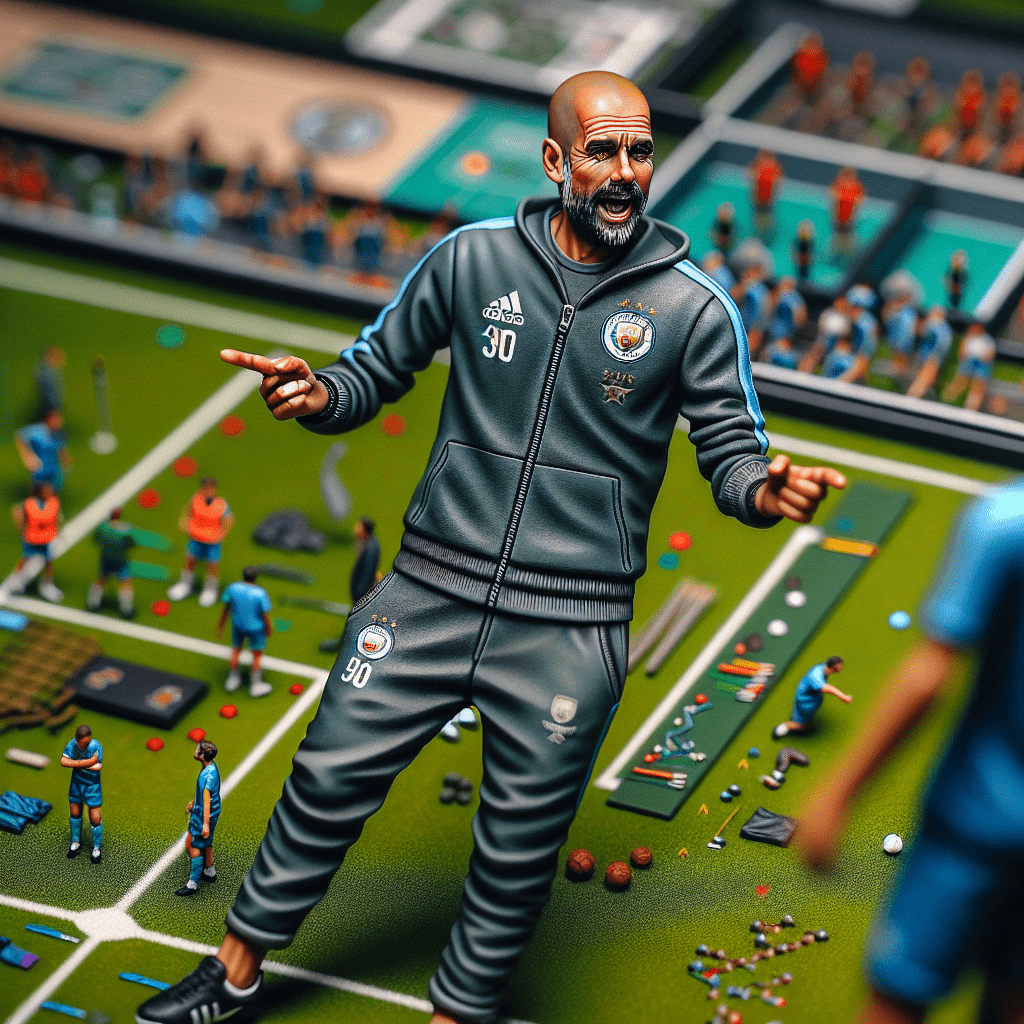The Tactical Mastermind of Football: A Deep Dive into Pep Guardiola’s Career and Philosophy
Pep Guardiola is a name that resonates throughout the world of football, synonymous with success, innovation, and an insatiable desire for perfection. The Spanish-born tactician has pioneered a philosophy of playing the game that has transcended borders and influenced an entire generation of coaches and players alike. His journey from a deep-lying midfielder at FC Barcelona to one of the most revered managers in the game’s history is a tapestry woven from dedication, intellect, and ceaseless passion for the beautiful game.
Beginnings at FC Barcelona: The Emergence of a Future Legend
Guardiola’s story began at La Masia, Barcelona’s famed youth academy, where he honed his skills as a player. Under Johan Cruyff’s tutelage in the dream team of the early ’90s, he developed an understanding of the game that would later become the bedrock of his coaching ethos. His leadership abilities were evident from his playing days, serving as a conduit for Cruyff’s ideas on the pitch.
The Transition to Management: Cultivating an Iconic Style
After retiring as a player, Guardiola began his managerial career at Barcelona B, quickly graduating to take charge of the senior team in 2008. What ensued was nothing short of a revolution in modern football tactics. At Barcelona, Guardiola perfected the “tiki-taka” style characterized by short passing and movement, possession-based play, and relentless pressing.
Masterminding Success at Barcelona
Under Guardiola’s guidance, Barcelona enjoyed one of the most successful eras in their history. His tenure saw the club win an astonishing 14 trophies in just four seasons, including three La Liga titles and two UEFA Champion Leagues. The team he crafted around figures like Lionel Messi, Xavi Hernandez, and Andres Iniesta is fondly remembered as one of the greatest football teams ever assembled.
Seeking New Challenges: Bayern Munich and Manchester City
After taking a sabbatical from football, Guardiola returned to management with Bayern Munich in 2013. Although his style initially seemed at odds with the dominant German football ethos, he successfully implemented his philosophy at Bayern while demonstrating flexibility and adaptability by molding it to suit the Bundesliga.
His next destination was Manchester City in England’s Premier League. Here, Guardiola faced new challenges adapting to the physicality and pace of English football, but with astute signings and tactical innovations, he turned City into a formidable force domestically and in Europe.
Innovation and Flexibility: Evolution at Manchester City
At Manchester City, Guardiola has shown great innovation in utilizing squad depth and varying tactical systems to match different opponents and situations. From his use of “inverted full-backs” to his strategic deployment of creative midfielders like Kevin De Bruyne and versatile forwards such as Raheem Sterling, Guardiola’s ability to evolve has kept his side ahead of competitors.
Impact on Modern Football Tactics
Guardiola’s influence can be seen across today’s game’s landscape. Many contemporary formations and tactical setups have their origins in principles Guardiola demonstrated so effectively throughout his career.
Notes
Image description: A befitting image for this article would depict Pep Guardiola standing on the training pitch engaged in deep conversation with his players. Dressed sharply in sportswear that bears his current club’s badge (e.g., Manchester City), Guardiola is animatedly discussing tactics with a player or pointing out positions on the field. Behind him is an array of training equipment reflecting the diligent preparation characteristic of his coaching style.

